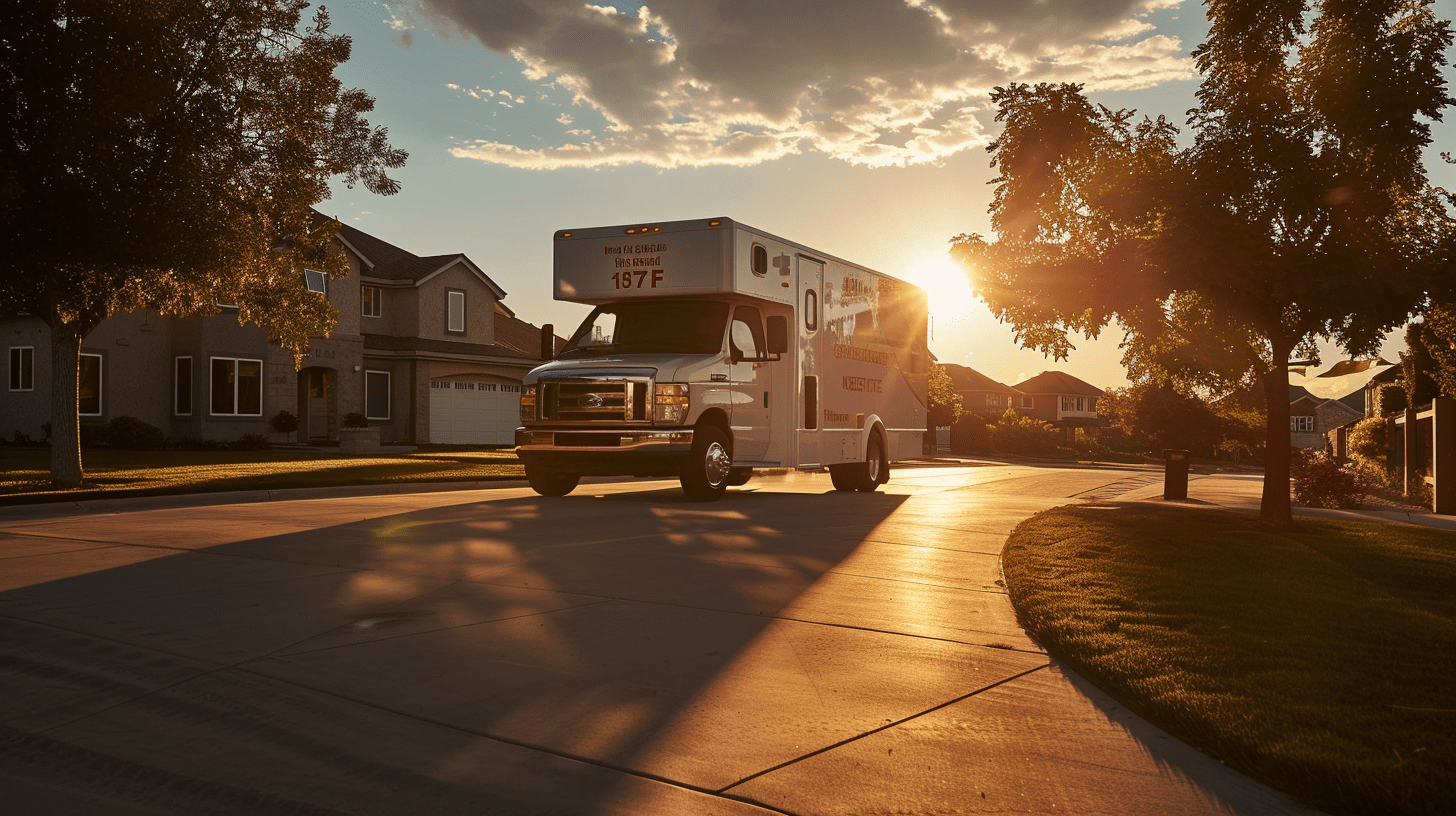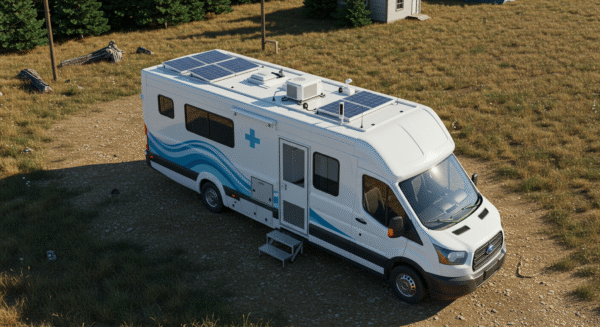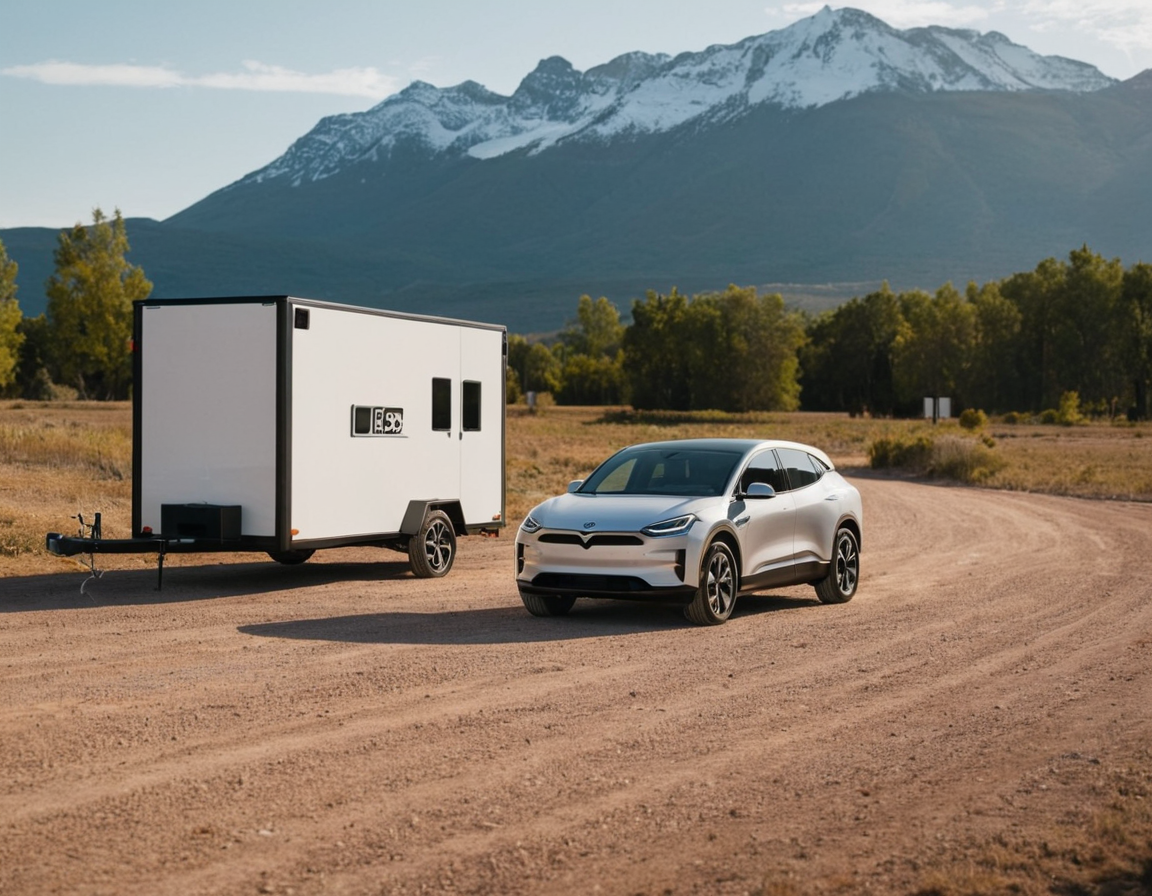Introduction
Ever wondered how healthcare can reach the doorstep of those in need, irrespective of their location or economic status? Enter the world of mobile clinics – the game-changers in today’s healthcare landscape. These roving health havens are not just vehicles equipped with medical equipment; they’re a beacon of hope for underserved communities and a strategic asset for healthcare providers. In this blog, we’ll dive deep into the myriad benefits mobile clinics offer to communities and healthcare professionals, highlighting their role in creating a more inclusive and efficient healthcare system.
Are you on board? Let’s get rolling and unpack the incredible advantages of mobile clinics!
Rolling Out the Benefits for Communities
- Breaking Down Barriers to Healthcare Access: Mobile clinics effectively bring healthcare services right to those who need them, especially in areas where traditional healthcare facilities are out of reach. With the mobile clinics market expected to reach USD 8.1 billion by 2032, it’s clear that these mobile health units are on a trajectory to significantly reduce disparities in health access and outcomes.
- Comprehensive Care on the Go: Offering services that range from primary care to screenings and health education, mobile clinics are a one-stop solution for community health needs. Their growth, projected at a CAGR of 11.3% from 2022 to 2032, underscores their expanding role in preventive care and public health.
- Building Trust Within Communities: By consistently returning to serve the same locations, mobile clinics cultivate relationships and trust, encouraging communities to engage more proactively with their health. This trust is crucial for improving community health outcomes over time.
- Immediate Care During Crises: Mobile clinics are invaluable during emergencies, providing immediate care when fixed-location facilities are unreachable. Their agility and flexibility have made them essential in disaster response efforts across the globe.
Driving Advancements for Healthcare Providers
- Cost-Effective Solution: The operational costs of mobile clinics, while averaging around USD 275,000 annually, are offset by the savings generated from reduced hospital readmissions and emergency visits. This represents a cost-effective model for healthcare delivery, emphasizing prevention and early intervention.
- Extended Reach: Healthcare providers leveraging mobile clinics can extend their services beyond traditional boundaries, tapping into underserved populations. This not only improves health outcomes but also broadens the base of healthcare engagement.
- Data Collection and Research Opportunities: The insights gained from serving diverse communities offer valuable data for public health research and policy-making. This data can drive improvements in healthcare services and address the specific needs of different populations.
- Flexibility and Scalability: The ability to adjust services based on community needs allows healthcare providers to respond to health trends dynamically. The cost of purchasing a mobile clinic ranges between USD 180,000 and USD 290,000 in Los Angeles, with additional customization costs. This investment enables providers to offer targeted, flexible healthcare solutions.
In Conclusion
Mobile clinics represent a significant advancement in making healthcare accessible, comprehensive, and cost-effective. They are a critical component of a modern healthcare system that prioritizes equity, efficiency, and adaptability. As we move forward, the integration of mobile clinics into healthcare strategies will continue to play a pivotal role in addressing the disparities in health access and outcomes, proving that sometimes, the best way to move forward is on wheels.
Frequently Asked Questions (FAQs)
- How do mobile clinics contribute to cost savings in healthcare? By offering preventive care and managing chronic conditions on the go, mobile clinics help reduce the need for expensive emergency room visits and hospital admissions, leading to significant cost savings for both healthcare providers and patients.
- What types of services do mobile clinics offer? Mobile clinics provide a wide range of services, including but not limited to primary care, dental care, mental health services, screenings, vaccinations, and health education, tailored to the specific needs of the communities they serve.
- Why are mobile clinics considered a flexible solution for healthcare delivery? Mobile clinics offer the flexibility to adjust services, locations, and operating hours based on community needs and health trends. This adaptability makes them an effective solution for addressing health disparities and responding to emergencies.
- What regions benefit most from mobile clinics? Mobile clinics have a significant impact in both rural and urban areas where healthcare access is limited. They are crucial in regions with few medical facilities, high poverty rates, and in communities that are geographically isolated.
- How do mobile clinics maintain privacy and confidentiality? Despite their compact space, mobile clinics are designed to ensure patient privacy and confidentiality, adhering to the same standards as traditional healthcare settings. They employ privacy curtains, soundproofing, and secure electronic health records to protect patient information.
- Can mobile clinics handle emergencies? While mobile clinics are primarily geared towards preventive care and primary health services, they are equipped to handle minor emergencies and can stabilize patients for transport to hospitals if needed. Their presence can be especially critical in disaster response, providing immediate care and screenings.
- What kind of staff can you find in a mobile clinic? Mobile clinics are staffed by a variety of healthcare professionals including doctors, nurses, dentists, mental health specialists, and support staff. The composition of the team often depends on the specific services offered by the clinic.
- How are mobile clinics funded? Funding for mobile clinics comes from a mix of sources including federal and state grants, private donations, and partnerships with healthcare systems. Some operate as part of nonprofit organizations, while others are affiliated with hospitals or health departments.
- What measures do mobile clinics take to ensure quality care? Mobile clinics follow strict protocols to ensure the delivery of high-quality care, including adherence to clinical guidelines, regular staff training, and the use of technology to monitor and improve health outcomes. They are subject to the same regulatory standards as fixed-site healthcare providers.
- How do mobile clinics impact long-term health outcomes? By providing preventive services, managing chronic conditions, and offering early detection screenings, mobile clinics can significantly improve long-term health outcomes. They help reduce the incidence of serious health conditions and improve the quality of life for underserved populations.
- Can mobile clinics provide care for chronic conditions? Yes, many mobile clinics offer ongoing care for chronic conditions such as diabetes, hypertension, and asthma. They provide regular check-ups, medication management, and education on disease management to help patients maintain control over their health.







